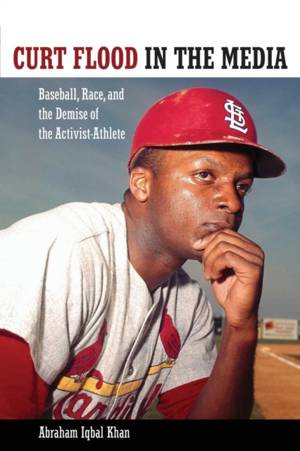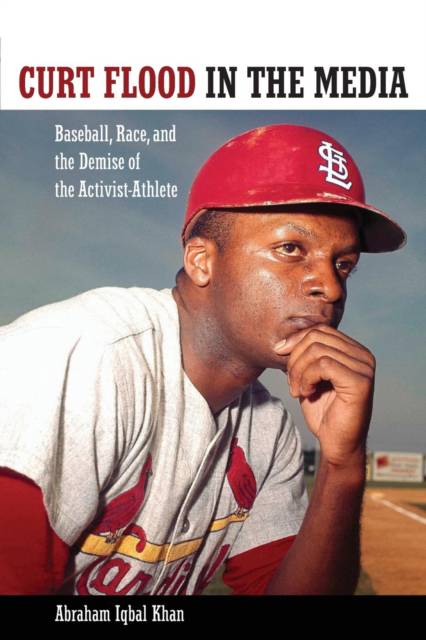
- Afhalen na 1 uur in een winkel met voorraad
- Gratis thuislevering in België vanaf € 30
- Ruim aanbod met 7 miljoen producten
- Afhalen na 1 uur in een winkel met voorraad
- Gratis thuislevering in België vanaf € 30
- Ruim aanbod met 7 miljoen producten
Zoeken
€ 59,45
+ 118 punten
Uitvoering
Omschrijving
How the interplay of media, race, and one player's defiance created free agency and changed baseball forever Curt Flood in the Media examines the public discourse surrounding Curt Flood (1938-1997), the star center fielder for the St. Louis Cardinals throughout the sixties. In 1969, Flood was traded to the Philadelphia Phillies. At the time, all Major League Baseball players were subject to the reserve clause, which essentially bound a player to work in perpetuity for his original team, unless traded for another player or sold for cash, in which case he worked under the same reserve conditions for the next team. Flood refused the trade on a matter of principle, arguing that Major League Baseball had violated both U.S. antitrust laws and the 13th Amendment's prohibition of involuntary servitude. In a defiant letter to Commissioner Bowie Kuhn asking for his contractual release, Flood infamously wrote, "after twelve years in the major leagues, I do not feel that I am a piece of property to be bought and sold irrespective of my wishes." Most significantly, Flood appeared on national television with Howard Cosell and described himself as a "well-paid slave." Explosive controversy ensued. Khan examines the ways in which the media constructed the case and Flood's persona. By examining the mainstream press, the black press, and primary sources including Flood's autobiography, Khan exposes the complexities of what it means to be a prominent black American athlete--in 1969 and today. Abraham Iqbal Khan, Tampa, Florida, is an assistant professor who holds joint appointments in the department of communication and the department of Africana studies at the University of South Florida.
Specificaties
Betrokkenen
- Auteur(s):
- Uitgeverij:
Inhoud
- Aantal bladzijden:
- 224
- Taal:
- Engels
- Reeks:
Eigenschappen
- Productcode (EAN):
- 9781617039461
- Verschijningsdatum:
- 11/09/2013
- Uitvoering:
- Paperback
- Formaat:
- Trade paperback (VS)
- Afmetingen:
- 152 mm x 229 mm
- Gewicht:
- 331 g

Alleen bij Standaard Boekhandel
+ 118 punten op je klantenkaart van Standaard Boekhandel
Beoordelingen
We publiceren alleen reviews die voldoen aan de voorwaarden voor reviews. Bekijk onze voorwaarden voor reviews.








